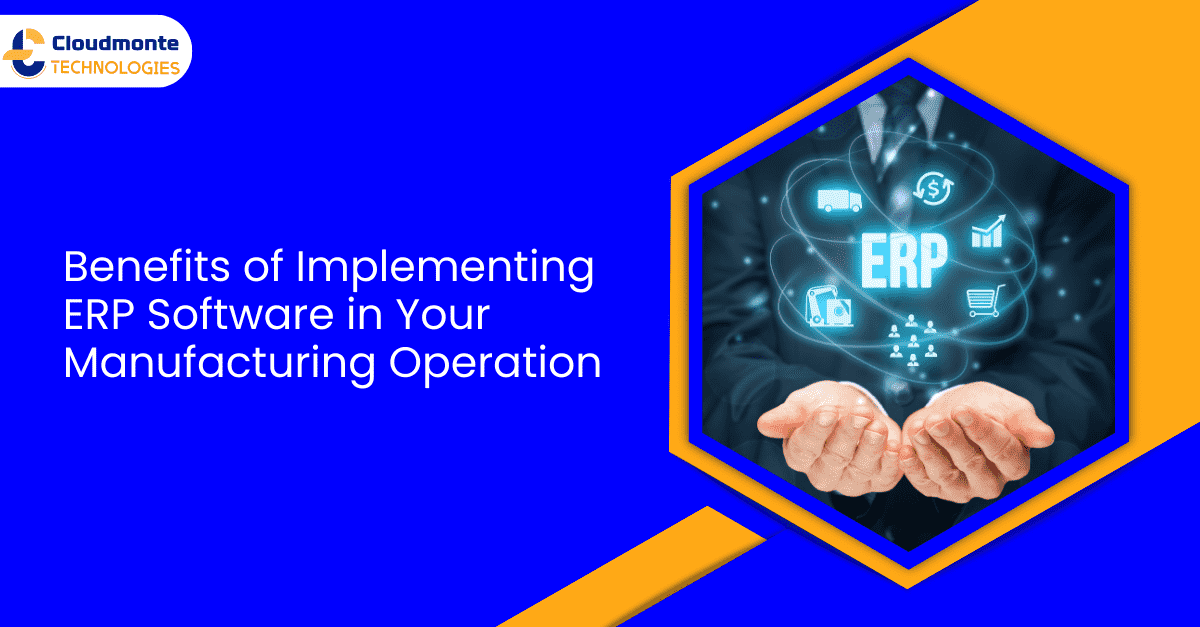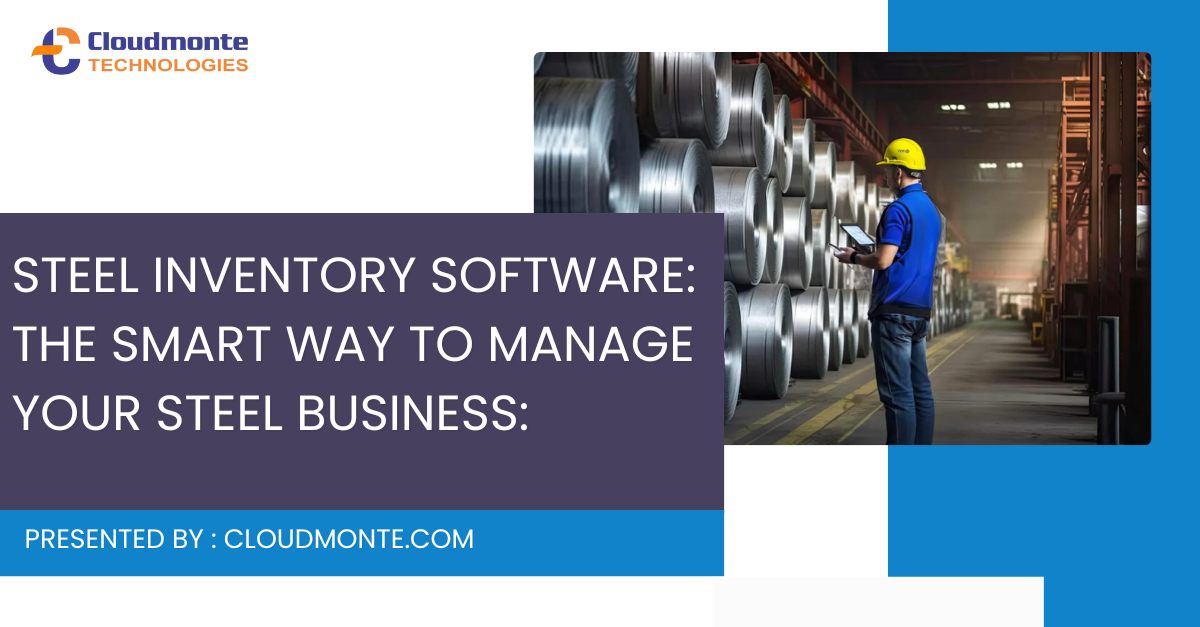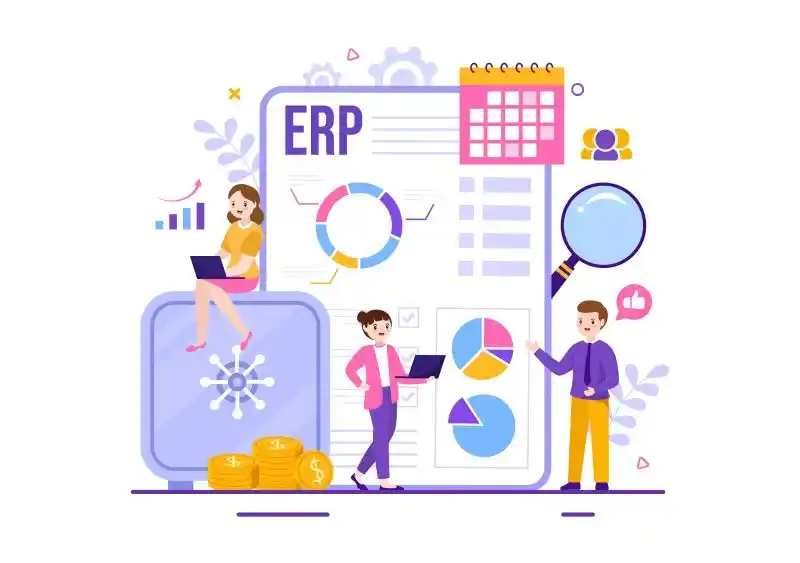Benefits of Implementing ERP Software in Your Manufacturing Business
For the manufacturing industry, there are several benefits of implementing ERP software. ERP software automates and streamlines regular business processes by centralizing compliance and supply chain operations, project management, customer interactions, risk management, and accounting.
ERP systems have gained significant traction in the last year or so, expanding beyond the realm of multinational corporations. The use of legacy systems accounted for nearly 35% of ERP implementations in the past year, according to a report by Finances Online Reviews for Businesses. To manage their daily operations, virtually every company will require a contemporary ERP system.
If you’re unsure about whether to implement an ERP system in the manufacturing industry, think about the advantages that each of these areas will bring to your company. First, we will let you know about ERP software.
What is ERP?
ERP, short for Enterprise Resource Planning, refers to a software or system that businesses utilize to efficiently manage and plan various activities such as production, financials, supply chain, and services. Enterprise resource planning software offers the opportunity to automate and streamline a diverse range of tasks, such as bookkeeping, purchasing, project management, CRM, risk management, compliance, and supply chain operations.

How does an ERP system work?
Software as a service will be provided by individual ERP programs, but an ERP system that combines many business activities and allows for efficient communication is formed by an entire suite of ERP applications. ERP systems allow data to move between different applications, usually via shared databases that are hosted in the cloud or on-site.
ERPs connect all aspects of a company. An ERP software system facilitates the planning, budgeting, forecasting, and accurate reporting of an organization’s financial health and operations, hence enabling improved performance and project management. Large, medium, and small businesses across several industries today need ERP systems.
Read this Blog:-> Why Microsoft Dynamics 365 ERP is the best option for the manufacturing industry?
Top 10 benefits of ERP for the Manufacturing Industry:
The benefits of ERP software for manufacturing business, which are outlined below, make it clear why any manufacturing business would choose the ERP solution.
1- Adaptably automate and streamline business processes
ERP software will automate routine business processes by centrally storing real-time data and providing total visibility into all business activities. Production data is easily monitored by end users without a separate team member.
ERP production will automate business processes, doing away with the necessity for manual processes. The manufacturing ERP solutions process will move more quickly to automation, which also lowers the chance of mistakes and boosts profitability.
2- Manage Cash-flow
A consistent and dependable cash flow is crucial for most businesses, and an integrated ERP manufacturing solution may help you manage your cash flow more effectively.
You will be able to follow up on past-due bills, do planning and buying reports, and get real-time information that will enable you to keep a careful eye on the data. Every transaction will be logged, ensuring an exact record of what is sent out and received.
3- Improve communication
Manufacturing ERP software serves as a portal for manufacturers to communicate production-related data with both internal workers and the public, including all affiliated vendors, suppliers, and distributors. An ERP may help increase communication and cooperation in the manufacturing industry. A factory ERP provides real-time data and insights into inventory, supply chain, and external market activity. A demand from one system to another is communicated in real time, expediting the fulfillment process.
4- Policy making decision
An organization’s ability to make decisions for the manufacturing sector is enhanced by an open-source ERP. It gives the customer a comprehensive picture of every team and the business cycle, which helps them assess problems more quickly and precisely.
Manufacturers that have access to vital performance metrics like total sales, sales margin, etc. may stay focused on their objectives and, when needed, make the right domestic choices.
From 2019 to 2025, the industry’s size—which was $75 billion in 2018—is anticipated to grow at a compound annual growth rate of more than 10%.
A thorough awareness of all internal divisions and systems makes day-to-day operations management easier.
5- Decreased Costs and Improved Profitability
Business leaders are focused on increasing revenue during the next two years. More effort at lower costs leads to business growth and profit increases.
ERP helps businesses to adapt quickly to market changes, such as fluctuations in raw material pricing and supply schedules.
A single, integrated database stores all data, enabling speedy information processing and high-quality decision-making.
Increasing organizational efficiency eliminates waste and finds low-profit sectors. The cost of maintaining and managing inventories has also lowered.
6- Improved Business Insights
Businesses may simply boost product production by completing quality management, project planning, simplification, and sales chain alignment rapidly. The timely delivery of products to their destinations is critical to maintaining customer satisfaction.
Manufacturing software for small business provides exact data, allowing managers to get a realistic perspective of inventory levels.
A contemporary ERP system, such as cloud ERP and online ERP, would assist manufacturing businesses in increasing internal profitability. The use of ERP manufacturing systems improves tracking, automation, and collaboration.
7- Increased flexibility
Manufacturing flexibility allows for quick answers to changes in consumer needs in a pandemic environment. Flexible manufacturing enables a firm to cooperate to meet customer and market expectations, respond more quickly to changing demand, and build order.
Flexible approaches provide increased market share, cost reductions, and improved efficiency.
8- Improvements to Product Quality
Businesses may use ERP manufacturing systems to effectively manage their production facilities. These solutions provide managers with real-time information regarding product faults and continuing difficulties in their production lines, allowing team leaders to immediately identify and address problem areas.
The quality of the items will surely increase, resulting in more sales.
9- Providing One Source of Company Data
When collecting data from several sources inside an organization, manufacturers typically face logistical challenges.
ERP software provides a single place for accessing data on productivity, pricing, administrative statistics, and other business-related information. It is feasible to make organizational choices based on real-time, actionable data and the same data source.
10- Better production control
A manufacturing ERP enhances production schedules. Production scheduling focuses on completing client orders on time. An ERP includes a master production schedule (MPS), which represents the items that the firm intends to create configurations, quantities, and dates. It aids in the forecasting and processing of sales orders. Once the number of sales orders and needs have been charted, we may use material requirement planning (MRP) to execute them.
MRP includes bill of material data, inventory data, and the MPS for calculating the needed quantities of materials and creating purchase orders and shop orders, which aid in maintaining a clear workflow within the manufacturing department. Thus, an ERP system offers data, resulting in helpful insights. All the reports, KPIs, and forecasting functions provide value to the manufacturing process and make decision-making more dependable.
Why Cloudmonte Technologies is known as the best manufacturing ERP software development company?
Cloudmonte Technologies ERP software for the manufacturing industry provides simplified operations, greater resource management, and better decision-making via real-time information. The integration of the ERP system provides your manufacturing company with extensive capabilities for demand forecasting, supply chain visibility, and quality control, assuring adherence to industry norms and laws.
Furthermore, Cloudmonte Technologies enables smooth scalability and flexibility, letting your manufacturing business adapt and expand in response to shifting market circumstances. Cloudmonte Technologies is known as the best ERP for manufacturing company because it helps businesses to increase customer interaction, generate innovation, and achieve long-term corporate success.
Conclusion:
Overall, manufacturing is often known as a factory. This is correct since one form of industry, manufacturing, also creates services. Production requires a faster and more efficient production process.
Cloudmonte Technologies provides the best value as the best ERP for manufacturing businesses, allowing you to streamline operations, enhance efficiency, and remain ahead of the competition in today’s changing business environment. Make the strategic decision to collaborate with Cloudmonte Technologies and transform your manufacturing operations with cutting-edge ERP solutions suited to your success.





